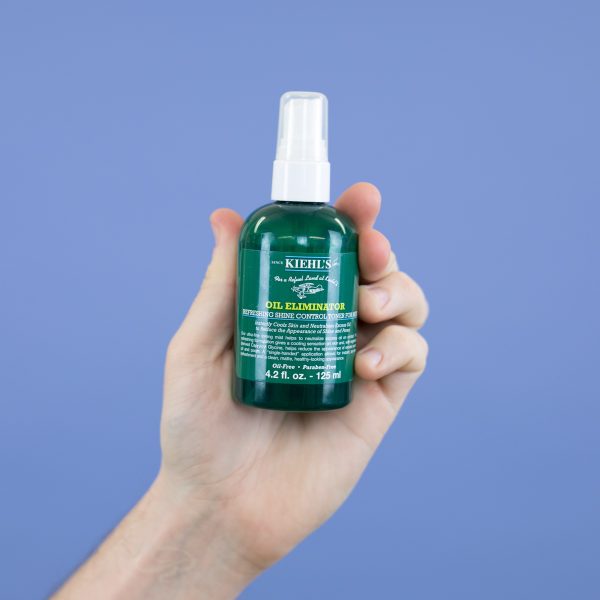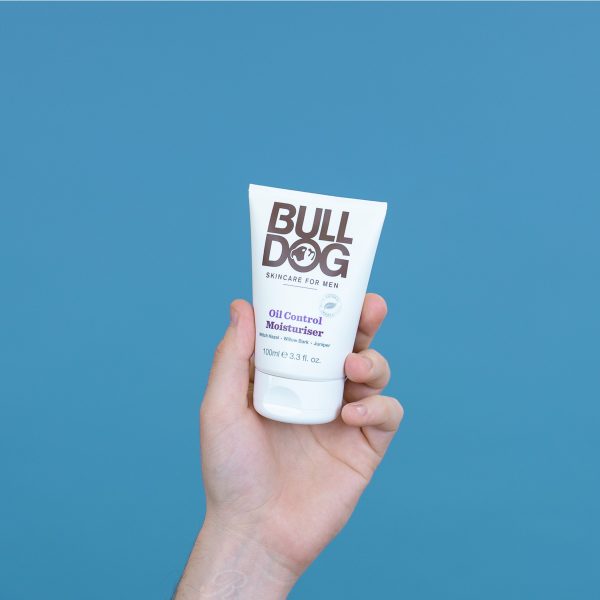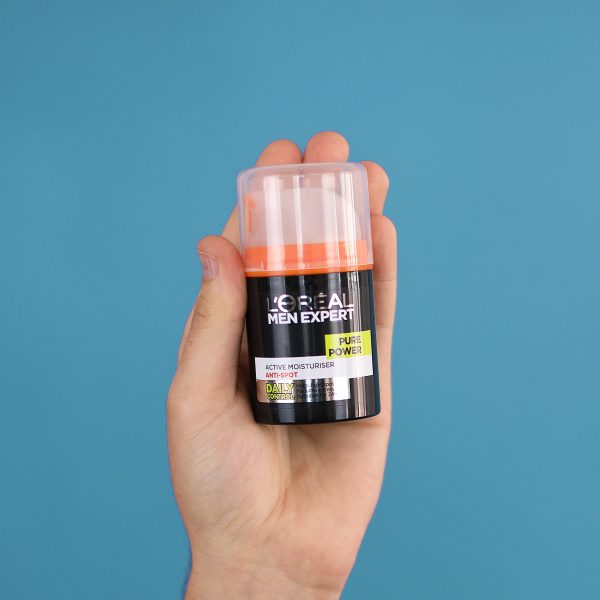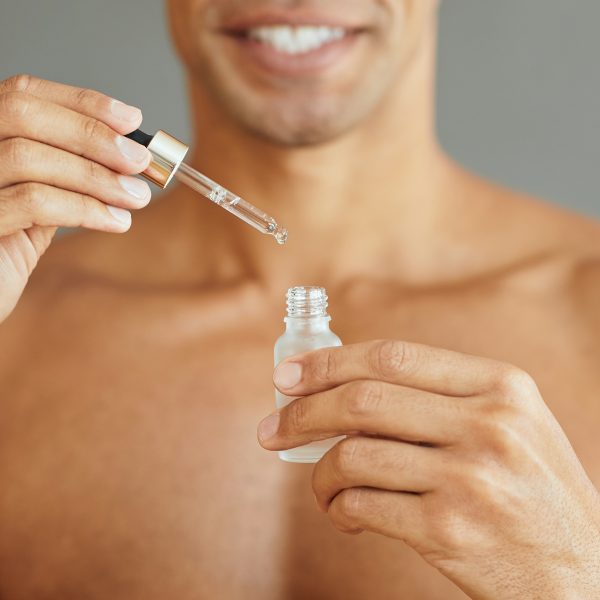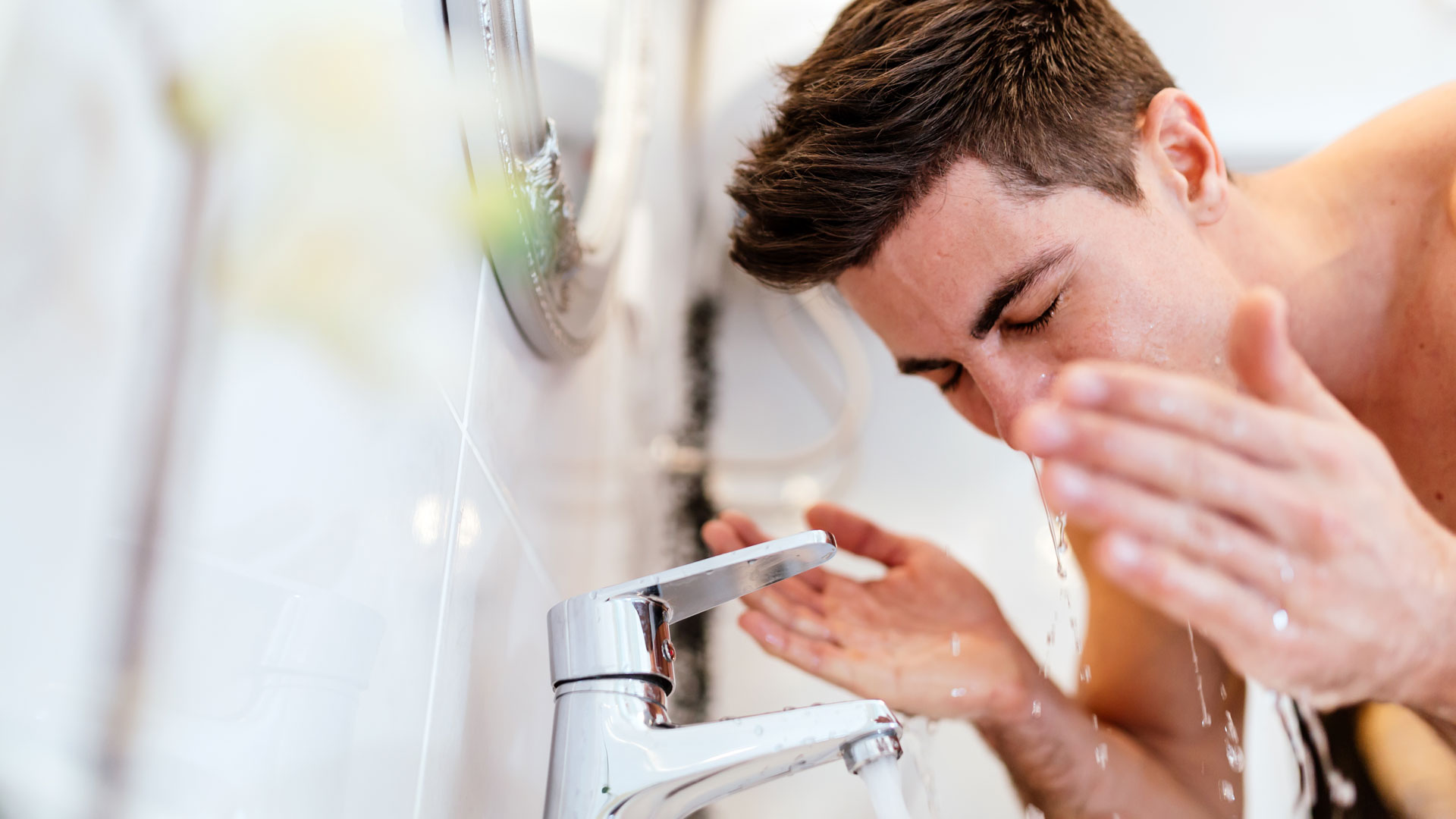
What Characterises Oily Skin
Oily skin is also referred to as seborrhea – mostly occurring in men between puberty and the age of 60 years. This is when overactive sebaceous glands produce excess amounts of sebum (which are responsible for the skin’s hydration and protection), causing your face to appear shinier.
Symptoms of oily skin include breakouts and pimples, larger pores, blackheads, rough-looking and shiny skin.
 Handsome man looking in mirror after shaving
Handsome man looking in mirror after shaving
What Causes Oily Skin
Clogged pores
The skin sheds dead skin every so often. If excess oil mixes with the dead skin, it clogs up the pores and becomes inflamed, which is why using a good cleanser that penetrates the pores is important.
Occupation
Working in a heated environment or one where you are exposed to pollution and irritants can trigger oily skin.
Restrictive clothing
Clothes should enable your skin to breathe, especially during strenuous activities. Lack of breathability can cause the oil-producing glands to overwork.
Excessive washing
An overly thorough wash can cause excessive production of oil by stimulation of the glands. This is a compensatory mechanism as the body tries to replace moisture removed by washing.
Environment
People living in hot countries, as well as humid regions, are more prone to having oily skin.
Hormones
The hormone in men known as androgen – when in abnormal levels – can cause more oil to be produced than usual.

How To Stop Oily Skin
- A light wash using lukewarm water with mild soap may reduce skin oiliness. Avoid using scented soaps and those with harsh components.
- Use blotting papers to pat out the excess oil, leaving the skin looking clean. Try not to over-blot the skin as it will leave the skin irritated.
- Try a toner to balance the skin. Some are made using natural astringents which have been known to contain soothing properties. These products might be more suitable to help cleanse the pores of dirt, dead skin and oils.
- Patting the skin dry, rather than wiping, can prevent the removal of natural oils and moisture from the skin.
- Facial masks have beneficial minerals, such as smectite and bentonite that keep the skin supple by taking away excess oil from the skin. They also have antibacterial, anti-inflammatory, antioxidant, antiseptic properties.
- An oil-free moisturiser helps the skin retain a reasonable amount of moisture. Aloe vera is a suitable natural moisturiser for people with oily skin.
- A lack of sleep can cause insulin resistance. This can trigger an increase in the production of sebum.
- It is vital that you protect the skin from the sun with oil-free sunscreen with a high SPF level (30+).
- Water is a vital factor within skincare. Staying hydrated ensures that the skin remains sufficiently moisturised and prevent the glands from working in overdrive.



